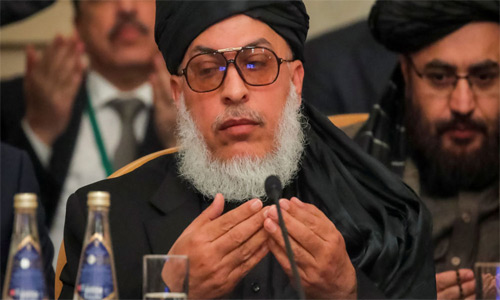Afghans fear that return of the “Islamic Emirate” after peace agreement between the Taliban and their Afghan and US interlocutors will put the democratic achievements, including human rights, at stake.
Women are particularly concerned about their rights and freedoms, which have been largely violated during the Taliban’s regime (1996 – 2001), and believe that their social, political, and economic activities will be restricted.
Whether or not Taliban’s marginalization in the Emergency Loya Jirga (Grand Council), held after the Bonn Conference, was a political error, the US Special Representative for Afghanistan Reconciliation Zalmay Khalilzad said in his book “The Envoy” that “the Taliban made decisions via a shura of Islamic scholars. The very concept of a Loya Jirga was anathema to them, representing the democratic and national values they despised. Formally involving the Taliban, moreover, would have provoked the Northern Alliance’s ire, jeopardizing the Loya Jirga’s broader success”. Hence, the Taliban had boycotted the Emergency Loya Jirga, which pushed for democratic principles, and would not participate even if they were invited.
In the Loya Jirga, in which the transitional government was formed, Khalilzad said that Ayatollah Mohseni, a Shia cleric, had urged former Afghan President Hamid Karzai to support sharia law, but Khalilzad already had told the Afghan leadership that the international community would not back Afghanistan “if Sharia were imposed and basic rights for women and minorities were not protected”. He added, “I knew we would end up with a system that accommodated sharia principles and also committed Afghanistan to international norms, principles, and laws regarding human rights.”
In addition to supporting Islamic tenets, Afghan Constitution adheres to democratic principles and officially recognizes the Universal Declaration of Human Rights and the UN Charter. Constitutionally, men and women are equal before the law and neither should be discriminated on the basis of their gender. Unlike some Islamic countries, Afghan women are allowed to run for presidency and be judges. In the post-Taliban administration, Afghan women made great strides and hold high political positions, including ministers, ambassadors, governors, MPs, etc.
It is most likely that the Taliban seek to convene Loya Jirga, after reaching peace agreement, to make amendments to the constitution so as to restrict the social and political role of women. Pushing for establishment of Islamic Emirate, the Taliban will intend to impose sharia law, perhaps with Talibanic interpretation.
With this in mind, the Taliban interlocutors have to be cautious not to bargain democratic gains at the negotiating table. Moreover, the international community and regional and global stakeholders have to side with Afghan nation and state, which advocate democratic principles.
A report released by Afghanistan Independent Human Rights Commission shows that 98.5 percent of Afghans are supporting the current political system and only 1.5 percent have supported return of the Taliban’s Islamic Emirate. It indicates that Afghans are strong supporters of democracy and Islamic Emirate would not be acceptable to them.
Afghans seek to exercise their rights and freedoms, which are neither against constitution nor against Islamic tenets. Both men and women should be able to play their social and political role so that the country could make progress. That is to say, women’s active role in social and political arenas will contribute to the country’s development.
For example, Pakistan is an Islamic country and women are widely involved in social and political activities. However, religious fundamentalists do not challenge women’s social role there. Afghanistan also is seeking to have a democratic country, where both men and women could play their role in collective life and their activities should not be restricted on the basis of their gender.
It should be noted that the current Afghan Constitution was endorsed in the presence of high-level clerics, who participate in the Loya Jirga. Thus, the constitution accommodates Islamic principles and moderate sharia law as it states in Article 3, “No law shall contravene the tenets and provisions of the holy religion of Islam in Afghanistan.” Meanwhile, Article 149 says, “The principles of adherence to the tenets of the Holy religion of Islam as well as Islamic Republicanism shall not be amended.” Regarding human rights, it adds that “amending fundamental rights of the people shall be permitted only to improve them.” Thus, no individual or group is allowed to amend the citizens’ fundamental rights – rights to life, liberty, and property – unless to improve them or change “Islamic Republicanism”.
Although the Taliban have claimed that their ideology is moderated and they would not enter Afghanistan with the past radical worldview, it has not been proved yet. The Taliban still continue their harsh approach in areas under their domination. So mistrust lingers and Afghans are fearful of the Islamic Emirate’s return.
Home » Opinion » Afghans Fear Return of Islamic Emirate
Afghans Fear Return of Islamic Emirate
| Hujjatullah Zia

